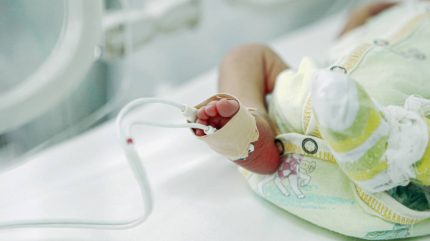
US-based clinical-stage intranasal vaccine company, Blue Lake Biotechnology’s pediatric nasal vaccine for respiratory syncytial virus (RSV), BLB201, was safe and effective for paediatric patients in a Phase I/IIa trial.
The Georgia-based company has said that, so far, the double-blind placebo-controlled study, examining an initial 63 infants and young children, saw no vaccine-related medically-attended adverse events (AEs) or serious AEs reported. Crucially research found that participants who received BLB201 had been more than 80% less likely to contract symptomatic RSV infections than participants who received placebo.

Discover B2B Marketing That Performs
Combine business intelligence and editorial excellence to reach engaged professionals across 36 leading media platforms.
The trial (NCT05655182) sought to recruit as many as 137 RSV seropositive and seronegative infants and young children between eight and 59 months old. So far, the company says that a total of 38 children have received either a single low dose or a single high dose of BLB201, and another 25 children have received placebo. The primary and secondary endpoints comprise assessments of safety, tolerability, and immunogenicity with additional endpoints looking at assessing the proportion of participants diagnosed with symptomatic RSV infection.
BLB201 is a parainfluenza virus 5 (PIV5)-vectored vaccine for RSV that is administered intranasally. The drug has received Fast Track designation from the US Food and Drug Administration (FDA) for the prevention of RSV-associated acute respiratory disease in adults over 60 and pediatric patients under two.
Biao He, founder and CEO of Blue Lake Biotechnology, said: “The preliminary analysis showing a greater than 80% reduction in the risk of symptomatic RSV infection underscores the promise of BLB201 as a safe and effective vaccine in preventing symptomatic RSV disease in infants and young children.
“We believe these data strongly suggest that our intranasal BLB201 vaccine has a distinct mechanism of protection which is different from the immunity generated by injectable formalin-inactivated and mRNA-based RSV vaccines which have been associated with VAERD. Such vaccines elicit very high levels of serum antibody responses but have not conferred protection against symptomatic RSV infection in infants.”

US Tariffs are shifting - will you react or anticipate?
Don’t let policy changes catch you off guard. Stay proactive with real-time data and expert analysis.
By GlobalDataResearch conducted by the US Centers for Disease Control details how every year RSV infections are responsible for 2.1 million outpatient visits among children younger than five years old, as well as between 58,000 and 80,000 hospitalisations among children in the same age bracket. Whilst there are available antibody drugs and a maternal RSV vaccine available to expecting mothers, there is as yet no approval for generating prophylactic immunity against RSV in infants and children.
Henry Radziewicz, chief medical officer of Blue Lake Biotechnology, said: “Historically, the biggest challenge that has stymied the development of infant RSV vaccines for decades is the risk of vaccine-associated enhanced respiratory disease or VAERD.
“In addition to the overall excellent tolerability and safety of BLB201 in infants and young children so far, it is reassuring that we have not detected any safety signals of VAERD.”
Elsewhere in the field of RSV treatment, biotechnology company Enanta Pharmaceuticals has reported positive topline outcomes from its randomised Phase II trial of zelicapavir, a potential treatment for the condition. Meanwhile, Shanghai Ark Biopharmaceutical has concluded enrolment and dosing for a Phase I trial of a fully human monoclonal antibody, AK0610, to tackle the infection.





